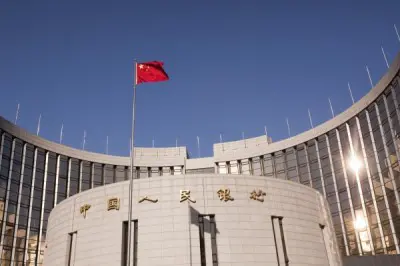Election results in Greece are expected to have a mixed impact on the Italian economy and could embolden Italian populists movements similar to the Syriza party which swept to power in Greece.
However, experts say the real risk is what will happen to Italy if the country's economy starts to have the same problems as that of Greece.
On Monday, Alexis Tsipras was sworn in as Greece's prime minister after the far-left Syriza party won nearly half the seats in the Greek parliament. Tsipras was able to form a government after striking a deal with a smaller anti-European party.
The developments sent shivers across the European Union. Tsipras said he wants to negotiate terms to reorganize Greece's massive foreign debt. But if pro-austerity Germany and other creditors refuse to negotiate, most observers believe Greece could default and might eventually be forced out of the eurozone.
That prospect further weakened the euro against the dollar and other currencies on Monday and Tuesday, when it lost a combined 0.8 percent of its value against the greenback.
The euro is now down 20 percent against the dollar in the last eight months, due to moves from the European Central Bank and uncertainty about the fate of debt-ridden eurozone countries.
Worries about Greece's next move add to that uncertainty.
In the short term, a weak euro is good news for Italy, since it will make Italian exports cheaper and make Italy a more attractive option for tourists from outside the eurozone.
But it could also make the European Commission take a more rigid stance on austerity in national budgets with the aim of forcing Greece to stay in line. If that happens, it would be bad news for Italy, which has been banking on having leeway for more flexibility in its budget plans.
It is also possible that if Tsipras and Syriza are successful in forcing countries to renegotiate Greece's debt, it could bolster prospects for anti-Europe groups in Italy, most notably the supporters of comedian and activist Beppe Grillo, currently the second biggest political party in Italy's parliament but whose influence is seen to be on the wane.
"It's easy to imagine a scenario where the economy fails to grow strong enough in Italy and at the same time Europe makes concessions to Greece," Gian Franco Gallo, a political affairs analyst with Hildebrandt and Ferrar in Milan, told Xinhua.
"If that happens, more people might look toward Greece and wonder why Italy can't have the same treatment," said the expert.
But according to Pierpaolo Benigno, an international finance expert with LUISS University in Rome, the biggest risks will come if Italy sees its economic and political situation erode to the point of Greece's.
"If the debt keeps accumulating and the institutions become less effective and Italy in the future started to look like Greece today, then it could create a serious situation in a much larger economy," Benigno said.
"The key is to look beyond short-term factors and make necessary reforms to make sure the problems do not approach that level," he said.
 简体中文
简体中文

